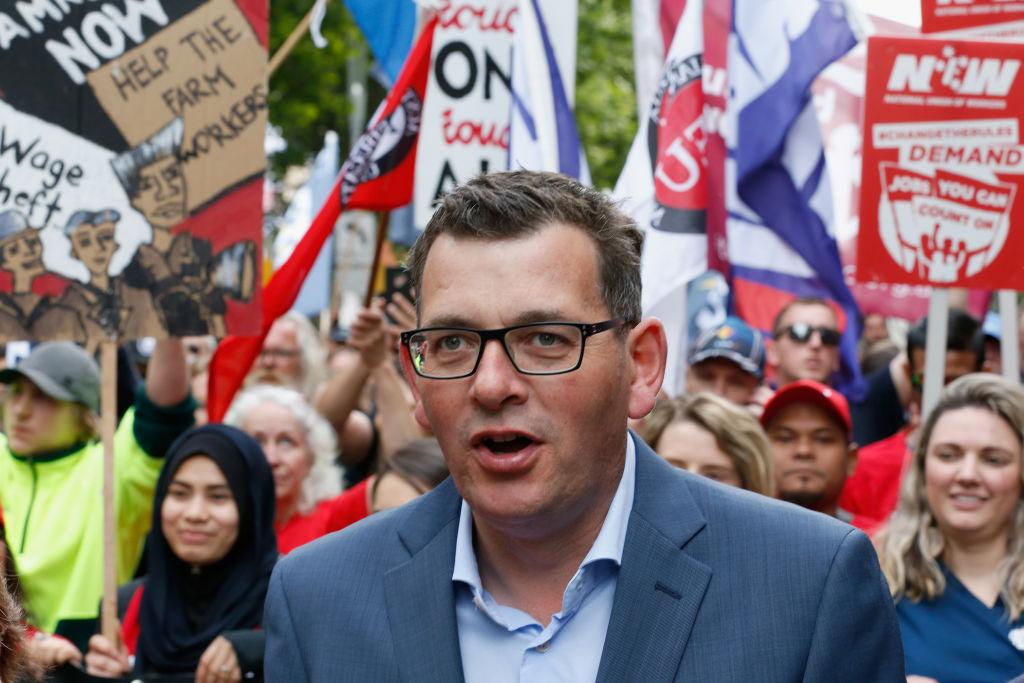During a heated Question Time in the Victorian state parliament on June 3, Andrews was asked by Opposition Leader Michael O’Brien whether electorate officer Nancy Yang had been vetted by security agencies before she was hired, saying it was “standard practice.”
The Premier replied, “Speaker, I reject the assertion from Leader of the Opposition that Australian citizens ought to be vetted by security agencies.”
“I’m not entirely sure that electorate office staff are ‘vetted’… one wonders what the term ‘vetting’ actually means in the context of what the Leader of the Opposition has put forward,” he said.
“The Leader of the Opposition and his conspiracy theories, well you stick at that, and we’ll continue to grow jobs and investment, profitability, prosperity.”
“The electorate officer in question is not only doing an outstanding job supporting her local community … but she’s an outstanding Victorian and one I’m pleased to have on my staff.”
Nancy Yang’s role in the Andrews’ government has come under scrutiny this week following revelations that she posted material on her Facebook page alluding to a conspiracy theory that the pandemic originated from the U.S. Army, and not from China.
According to The Australian Yang posted the article on March 18 on Facebook titled: “Chinese official suggests US Army to blame for outbreak.” Yang also wrote a comment reading, “U.S. owe an explanation.” The post was recently deleted.
A ‘Patriotic’ Chinese Youth Praises the ‘Motherland’
Nancy Yang was a founding member of the Melbourne Chinese Youth United Association (MCYUA) in 2006, as well as a committee member of the Chinese Community Council of Australia (Victoria).Her work in the MCYUA drew attention from the United Front and she was subsequently invited to “represent the United Front” and other affiliated organisations to participate in “training, study tours, innovation, and discussions.”
In the interview, Yang said she found Australia’s economy was “increasingly dependent on China.”
“The Australian government now often plays the “China card,” she told the Guangming Daily in 2008.
“Today, Chinese people who study, work, and live in Australia, no matter what their status, they have greater opportunities because of this situation. I am deeply proud to have a strong motherland (China) behind me.”
“We have more opportunity and vision to identify with the motherland (China), so we have more reason to focus on the motherland (China) and do things for the country.”
Supporting the Beijing Olympic Torch Relay
Yang was involved in organising Chinese students to support the torch relay.
Yang told CCTV that during the torch relay pro-China supporters would scream slogans to drown out protestors, saying, “In Canberra, when there were different voices, the voice of “One China!” immediately overwhelmed them.”
The CCP’s Nationalism, ‘Little Pinks’ and the ’50 Cent Army’
Vicky Xiuzhong Xu, an analyst at the Australia Strategic Policy Institute, wrote in October 2019 of how the concept of nationalism has been “hijacked” by the Chinese regime to “indoctrinate its citizens and the diaspora.”Xu said pride in the country’s achievements was distorted to represent “pride in the CCP” which was a narrative channelled into schoolchildren and the public.
“On the first day of primary school, we were given a student handbook in which the first rule was to love the country and the party,” she wrote.
“Growing up, ‘Taiwan is a sacred, inseparable part of China’ was taught to us as a fact just like ’the Earth is round.'”
“The most common wish for an idealist Chinese teenager is to ’serve the motherland,'” wrote Xu. “To be a model Chinese citizen is to be ready to fight.”
“In particular Chinese students from major cities in … Sydney, Melbourne and Adelaide made a big move on 16-17 Aug 2019, shouting [profanities] at peaceful pro-Hong Kong rallies,” Feng said.
Feng said overseas students who were away from family or friends in China were lonely, and more susceptible to the influence of CCP propaganda, Chinese-backed student associations, and closed WeChat groups.
“In reality, they have little contact with [local] students, are not involved in local culture, and do not join the union of local student organisations,” he said.





